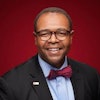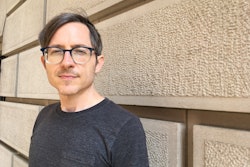Brooklyn College is currently hovering under a small, but growing cloud of criticism for requiring its incoming freshmen to read a “polemical” book that “inculcates” students with a particular political perspective. Students have already read Brooklyn College English Professor Moustafa Bayoumi’s How Does It Feel To Be a Problem?: Being Young and Arab in America.
Publishers Weekly describes Bayoumi’s “absorbing and affectionate book” as “a quintessentially American picture of 21st century citizens ‘absorbing and refracting all the ethnicities and histories surrounding [them].’ However, the testimonies from these young adults—summary seizures from their homes, harassment from strangers, being fired for having an Arab or Muslim name—have a weight and a sorrow that is ‘often invisible to the general public.’”
The cloud recently emerged out of the words of Bruce Kesler, popular blogger and owner of an employee benefits consulting and brokerage firm, who recently pledged to delete his alma mater out of his will. In Kesler’s piece, “I Just Disinherited My Alma Mater,” he wrote:
“What caused the disinheritance is that all incoming freshmen and transfer students are given a copy of a [Bayoumi’s book] to read, and no other, to create their ‘common experience’… . When I attended in the 1960s, Brooklyn College—then rated one of the tops in the country—was, like most campuses, quite liberal. But, there was no official policy to inculcate students with a political viewpoint. Now there is. That is unacceptable.”
Also, the National Association of Scholars recently stated: “We agree with those who find the assignment of this polemical book as common reading troubling. While much of How Does It Feel To Be a Problem? seems a straightforward telling of stories, its central purpose is clear. It aims to establish Arab and Muslim Americans as victims and indict American society for making them so.”
A few BC professors, according to Kesler’s blog, have also come out against the reading of this text.
I have no problem with Brooklyn College assigning this text, just as I’d have no problem with BC assigning a liberal or conservative book on the Arab American experience.
The proponents and opponents have already lined up behind ideological lines. Scholars truly interested in academic freedom and/or ideological variety, radicals, and left-leaning liberals say they have no problem with the text. Right-leaning liberals and conservatives oppose the text, and, rightly fully so, as that is their political duty.
In this piece, I would like to address the heart of the argument against its use: The idea that it is a biased book.
To me, the term “biased book” is an oxymoron. Just as I wrote during the Arizona Ethnic Studies bill controversy, every book politically and culturally inculcates. Every social scientific book has a central purpose (whether conscious or not to the author). Every book is polemical. A book on the Arab American experience will either indict America (radical). It will indict Islam and pose America as a victim (conservative). Or it will do a little bit of both (liberal).
I get so intellectually exhausted hearing conservatives slam liberal and radical books as biased; liberals positions conservative and radical texts as slanted; and radicals critique liberal and conservative manuscripts as subjective. They are all biased, slanted, polemical, and subjective.
African-American, Latino, Native American, Asian, women, LGBT, and open-minded White students succeeded in forcing major elements of diversity on higher education in the 1960s and 1970s. The inclusive study of people who were not wealthy White heterosexual males was mainstreamed.
However, certain ideas, which were foundational to the pre-1960s exclusive academic project, remained, even after they were furiously attacked in the halls of the academy. One was this concept of objectivity or that there is such a thing as social scientific literature that does not inculcate people with a political (and cultural) viewpoint.
Every single social scientist has a political viewpoint and a cultural standpoint. Along with a social scientist’s social experience, this political viewpoint and cultural standpoint inform what a scholar is interested in, the questions a scholar asks, the material he or she chooses to include and exclude from the text. Every time a social scientist makes a decision in the scholarly process, he or she shows bias.
The differences lie in the writers who are conscious of their political viewpoint(s) and cultural standpoint(s) and those who are willing to admit their subjectivity and biases in a scholarly community with people who think objectivity is not only possible, but mandated.
A scholar can be objective, but only if we move the construction of objectivity from the abyss of biasness to the foreground of truth telling. Asking a human being to be a robot with no biases is impossible. However, asking a human being to tell the truth in their particular scholarly domain is possible.
In reference to Bayoumi’s text, the question should be did he accurately and clearly present and contextualize the responses of his interviewees. The query should not delve into his political viewpoint. If someone feels that Bayoumi left out a political viewpoint, it is the responsibility of that person to fill in that hole in the literature and not remove Bayoumi’s book from the hands of BC freshmen.
I am thrilled Brooklyn College did not succumb to the rain of criticism and remained steadfast as a true academically free American higher education institution—one that serves as a clearinghouse for all political viewpoints and cultural standpoints, from the far left to the far right. True diversity not only welcomes all people, but all ideas.
Dr. Ibram H. Rogers is a postdoctoral fellow at Rutgers University. He is on leave as an assistant professor of African-American history at SUNY College at Oneonta. Visit his personal blog “The Progressive Corner” at progressivecorner.wordpress.com.


















